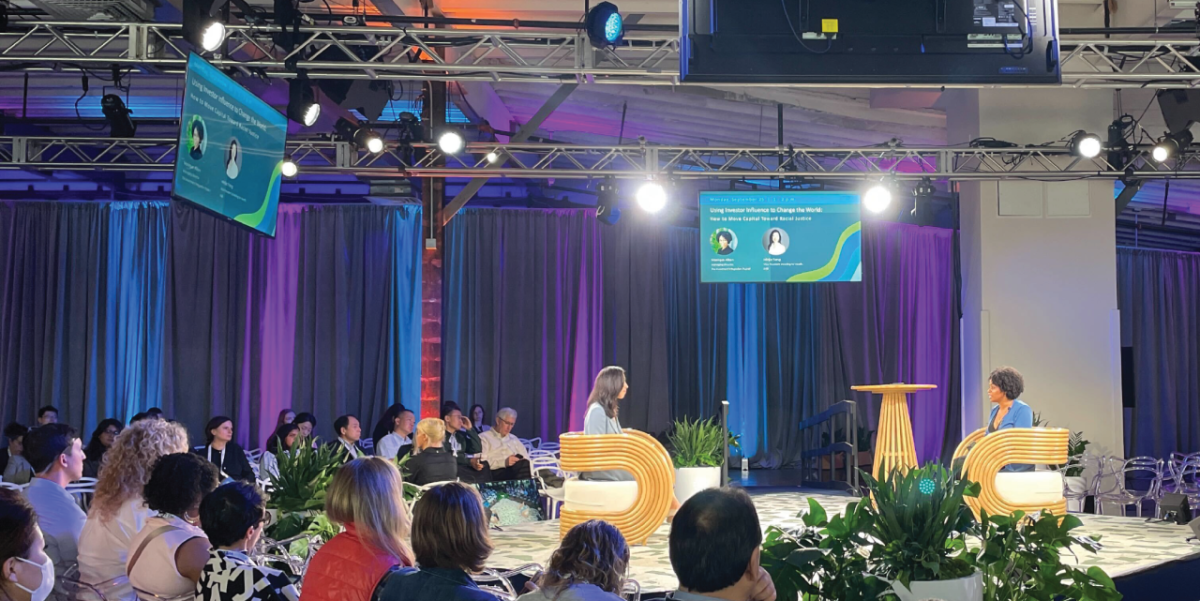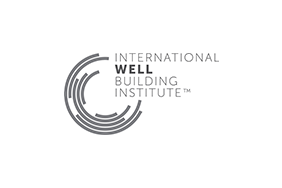WELL Summit 2023: Using Investor Influence to Change the World: How to Move Capital Toward Racial Justice
Published 09-28-23
Submitted by International WELL Building Institute

The financial system can use its outsized influence to manage the systemic risk of racial inequity–and shift the focus from risk management to value creation. This was the premise of the WELL Summit MainStage session, “Using Investor Influence to Change the World: How to Move Capital Toward Racial Justice.”
In the investment world, equity doesn’t add up. But it should actually be a force multiplier for change. The financial system can use its outsized influence to manage the systemic risk of racial inequity–and shift the focus from risk management to value creation. Investors have incredible amounts of power. What will they do with it?
This was the premise of the WELL Summit MainStage session, “Using Investor Influence to Change the World: How to Move Capital Toward Racial Justice.”
As Minjia Yang, vice president of Investing for Health at the International WELL Building Institute (IWBI), noted in her introduction of the session, “Capital can and should serve as the catalyst for change. A people-first economy is necessary to achieve this vision.”
Monique Aiken, managing director of The Investment Integration Project (TIIP), shared historical perspective and a strong business case for focusing on and investing in efforts that will drive racial equity.
By the numbers:
- People of color will make up the majority of the U.S. population by 2050.
- Research suggests that racial inequity between Black people and white people alone cost the United States an estimated $16 trillion in GDP between 2000 and 2020.
- If there were fair and equitable lending practices for entrepreneurs of color, the U.S. economy could have created more than an estimated $13 trillion in business revenue and more than six million jobs in that same 20-year period.
- Citi GPS and the W.K. Kellogg Foundation calculate that improving equity between white Americans and Black Americans alone could grow the economy by $8 trillion by 2050.
“You could easily imagine that there would be even more substantial gains if we add the effects of full participation of Indigenous people and other people of color to this mix. And that has not been well studied, which is also problematic in itself,” Aiken noted.
The key takeaways:
- Racial inequity is a major threat to the U.S. economy and financial system. “It’s a feature not a bug,” Aiken noted. This is why investors should care and why everyone should care. It’s not only the right thing to do morally, but it threatens economic growth and racial inequity leads to social unrest.
- Conversely, racially diverse teams make better decisions and can help companies make more money.
- Aiken advises, “Go short on the past, long on the future. We must invest differently and in new things because what got us here, got us here.”
- “Look closely at the present you are constructing; it should look like the future you are dreaming.” - Alice Walker, American novelist and poet
*Read more about how investing in health, well-being and equity pays back through our comprehensive research review and on our website.
Stay tuned for more highlights from the WELL Summit in Washington, D.C. For today’s schedule, please visit https://www.wellcertified.com/well-summit.*
View original content here.

International WELL Building Institute
International WELL Building Institute
The International WELL Building Institute (IWBI) is a public benefit corporation and the world’s leading organization focused on deploying people-first places to advance a global culture of health. IWBI mobilizes its community through the administration of the WELL Building Standard (WELL Standard) and WELL ratings and certifications, management of the WELL AP credential, the pursuit of applicable research, the development of educational resources and advocacy for policies that promote health and well-being everywhere. More information on WELL can be found here.
IWBI is a participant of the United Nations Global Compact, the world’s largest corporate citizenship initiative, and helps companies advance the UN Sustainable Development Goals (SDGs) through the use of WELL.
More from International WELL Building Institute

